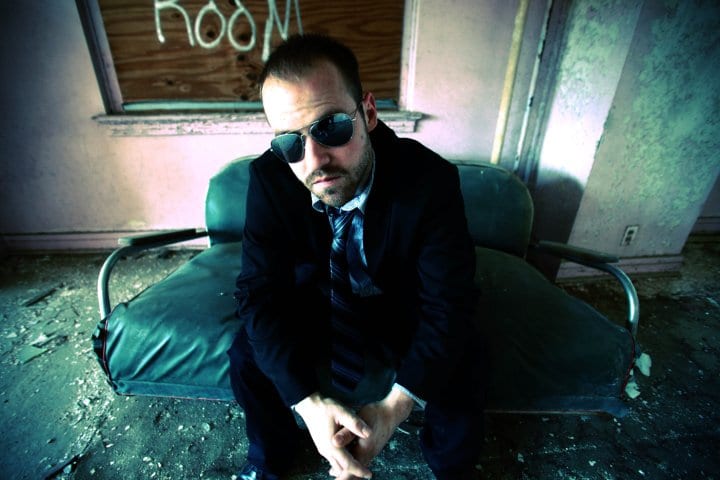Satori Ananda 
Satori Ananda (Chief of staff at War Media & Co-Founder of Social Werk), did not have a business plan when she became an entrepreneur. Like many arts entrepreneurs have explained, the purpose behind having a business plan is understood, but not a necessity for a successful business. Ananda didn’t have one to start with, but thoroughly believes that without one “you can go in any direction”, and having one lays out the correct path to stay on. Some people need that path mapped out more than others, however, she was able to work with artists such as Pharoahe Monch, Pete Rock, and Jean Grey, while establishing an entrepreneurial arts business that was successful four years before it became necessary for her to create one.
Success can be quite difficult to duplicate. During my interview, I asked Ananda for three pieces of advice to starting entrepreneurs. At the top of her list is recognizing your own presence online. While social media platforms like Facebook are great ways of obtaining exposure, advertising through existing platforms drives traffic to those websites and builds their online real estate, not yours. It is imperative to have both.
Another key ritual she recommended adopting is collecting email addresses everywhere you go. She says that using social media is like making an announcement in Times Square, and emailing directly is like ringing their doorbell. Once she explained it in those terms, I had a deeper understanding of the importance behind it.
The last piece of advice she gave me was to take the time to research similar businesses to yours. By identifying what the weaknesses are for that business, you can make your business better than the competition.
Jeff Adair 
Jeff Adair, founder of Dream. Work. Conquer. FIlms, specialises in producing music videos. He too was able to get his arts entrepreneurial business off of the ground without a business plan. Instead, he used vision boards as a reference for the direction he would follow. He doesn’t believe it is necessary to start out with one but says it is necessary if you want to take your business to the next level. It was three years before he actually needed one, and it was for the expressed purpose of attracting capital. According to Adair, a business plan is vital to investors and venture capitalists. “They have to see everything black and white. They aren’t really going to be able to go off of your passion.” As an “Art Institute of Dallas” alumni, he remembers being taught the importance of having a business plan but felt the best thing for him was to start working right away. His training and experience aided in his success and afforded him the opportunity to work with artists such as Lil Boosie, Nipsey Hussle, Bun B, Juicy J, and Juelz Santana.
Adair offered three pieces of advice that he thought would be useful to arts entrepreneurs. Finding a successful mentor that is working in the field is most important. Having the proper guidance can save money, time and energy. In essence, it can be the difference between success and failure. Education is an important factor in success, according to Adair. He recalls numerous times where the etiquette of untrained producers demonstrated a lack of professionalism. While set etiquette is very important, he also suggests finding a way to get educated that doesn’t involve going into debt. For students who pay their own tuition, starting out in life with a $100,000 debt may not be the quickest path to success.
Antone Amalbert 
Arts Entrepreneur, Antone Amalbert, wears a multitude of hats which include musician, producer, and recording engineer. Although he did not have a business plan like he did with other businesses he previously started, he had a specific vision and goal. As his clientele increased, he began to turn down opportunities he would have otherwise taken because he was still working a full-time job. A financial analysis revealed that he could make more money if he pursued his music career full time, so that is exactly what he did. His success continued, and although his business grew immensely, he had no specific need for a business plan. He found that he was able to monetize on his talents by embodying a professional work ethic, quick turn around time, and properly charging for his services. Throughout his career, he has been fortunate enough to work with artists such as Erykah Badu, Kenny Lattimore, Tweet, and Kirk Franklin. Many arts entrepreneurs under price their services and people will take advantage of that if you let them. He stresses the importance of being paid what you are worth. Without doing so, becoming a successful entrepreneur is nearly impossible.
Earlier in the interview, Amalbert mentioned the importance of having a good social media presence. But when I asked him for three pieces of advice he could offer aspiring arts entrepreneurs, his response was short, simple, and direct. He said, “Be approachable, be timely, and be a person of your word.” Those are very important qualities that I don’t often find in people. The bottom line is, it will be difficult for any entrepreneur who can not follow those three simple rules.
Analysis:
Interviewing three arts entrepreneurs was a very enlightening experience. I have personal and business relationships and an enormous amount of respect for all three interviewees, but I have never asked them specific details about how they started their businesses. Once I completed all three interviews, I had to ask myself why I had not approached them previously, when I attempted to start other entrepreneurial ventures. Perhaps if I would have, those other ventures may not have failed.
Prior to taking a class in entrepreneurship, I wrongfully assumed that business plans were vital to the success of a startup company. I was under the impression that it was the first step in moving forward with any idea and without one, it would be difficult to be taken seriously in the business world. When Professor Hart taught us that wasn’t the case, I still had my doubts and figured I would get a different answer when conducting primary research. However, I was quite surprised to find out none of my interviewees started out with a business plan, and two believe that in some cases, a business plan may not be necessary at all. From what I gathered, a business plan is only essential if investors were being sought out. And while some people appreciate the direction and prioritization it provides, others entrepreneurs like Jeff Adair, found that using vision boards allowed him to achieve the same results. The primary research I conducted brought me to the conclusion that although a business plan is not needed, it is essential to have a complete understanding of the information used to create one.
Another assumption that I was incorrect about was the type of advice I would receive. I was under the impression that it would be similar, but that was not the case. I expected everyone to stress the importance of having a mentor or online presence, but I was not expecting anyone to mention being timely or collecting email addresses. While I can stand to benefit from all the advice that was offered, I really appreciate the fact that I was given advice that I would have never thought of. Coincidentally, it will most likely be the unexpected advice that will have the most impact on my business decisions.
In conclusion, this assignment was invaluable and essential to my understanding of how the average entrepreneur operates. Without conducting primary research, preconceived notions and assumptions could easily overpower facts and practices of people actually working in the industry, which can be detrimental to a start up business.
Lauren Morgen, currently a student in Arts Entrepreneurship at SMU, Meadows School of the Arts, conducted the following series of interviews. This interview series has been conducted, attempting to identify if creative entrepreneurs begin with business plans and if such plans are perceived as necessary. Advice and commentary follow.




